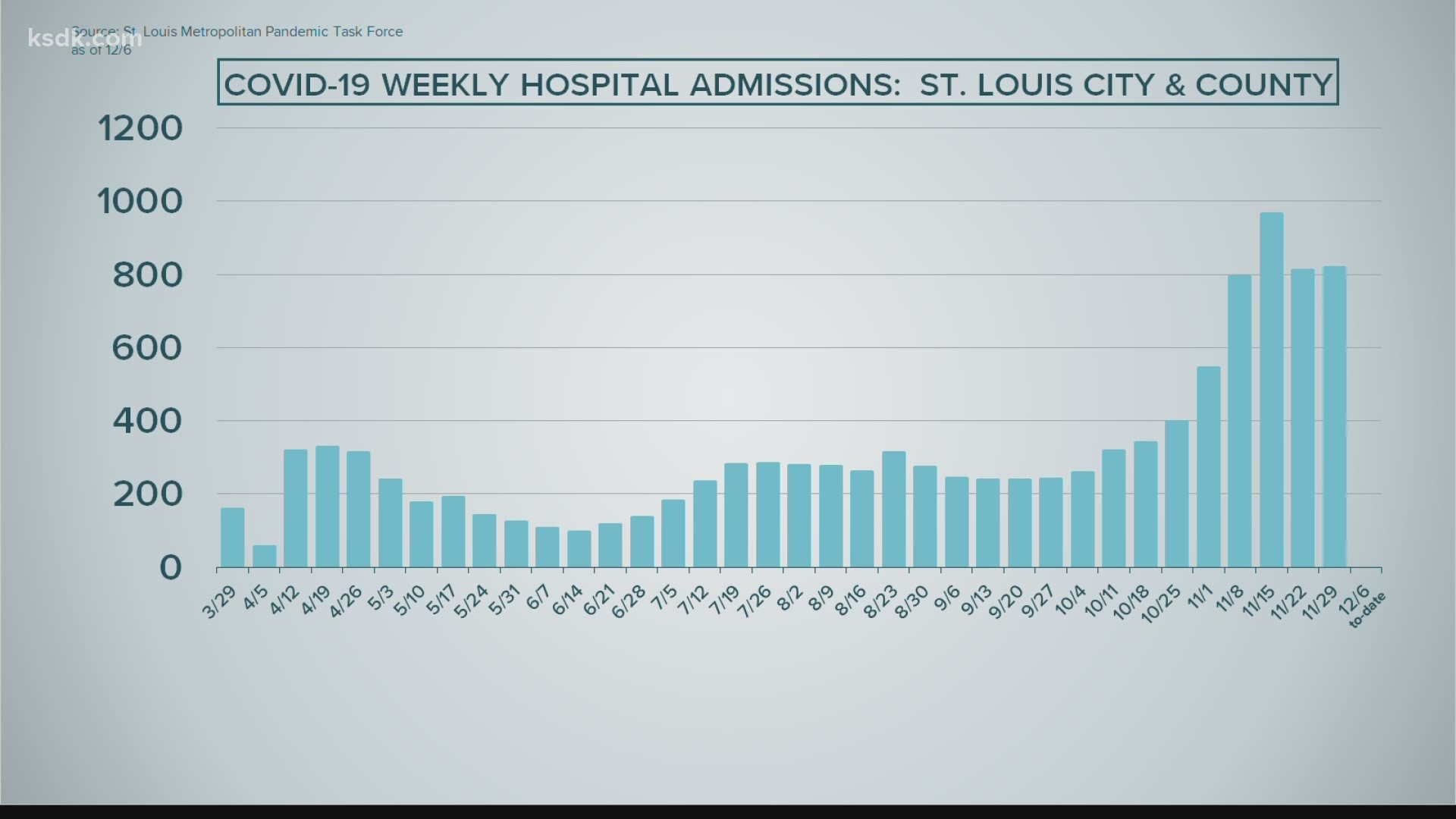ST. LOUIS — When Mary Grobe called her doctor to report a mild cough and runny nose in mid-November, she was sure nothing was out of the ordinary.
"I felt like I had a sinus infection, which is normal for me this time of year," Grobe said.
At her doctor's recommendation, she got tested for COVID-19.
In the couple of days she waited to hear back, her symptoms got worse. By the time she got the call with the positive results, she felt terrible.
"I've never ever been this sick," Grobe said.
Nearly two weeks later, she went to an urgent care center because she was having trouble breathing.
"The doctor told me I had pneumonia," Grobe said.
The urgent care doctor told her pneumonia is one of common side effects of the virus, and she said she's heard of it happening to other people she knows who had the virus.
"It's miserable," Grobe said. "You just don't know how it's going to affect you."
Grobe has been sick for four weeks, and she said progress is slow.
"You're tired all day," Grobe said.
Grobe, who is 41 and said she has no underlying health conditions, said she she is grateful to be able to recover at home.
On Monday, Dr. Alex Garza announced there are 894 COVID-19 patients in task force hospitals during Monday's briefing.
RELATED: Approximately 20 people per day dying in area hospitals, St. Louis pandemic task force says
While the task force reported slight drops in some day-to-day hospital numbers, Garza said it's more important to focus on the average trends. Those are still disturbingly high, and Garza said they do not account for the impact doctors anticipate from Thanksgiving travel.
"There was a night when I probably should have called an ambulance and gone, but the thought in my head was, 'Am I sick enough to take a spot?'" Grobe said. "That's kind of sad to have that thought."
However, if things don't improve, medical professionals may have to make that call for patients.
Garza said, if the spread ramps up, reaching a reproductive rate of 1.5, the region could surpass bed capacity in a week and a half. If things stay the way they are now, he said the region will reach capacity by the end of the year.


